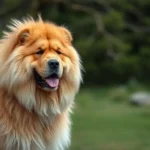
Introduction
Dog breeds are distinct types of dogs that have been developed over time through selective breeding. Each breed possesses unique characteristics, behaviors, and physical traits that make them suitable for various roles, from working dogs to family companions. Understanding different breeds is crucial for potential dog owners, as it helps in choosing the right furry friend for their lifestyle.
Among the myriad of dog breeds, the Havaton stands out as an adorable and affectionate crossbreed. This delightful hybrid is a mix between the Havanese and the Coton de Tulear, two breeds known for their charming personalities and beautiful coats. In this article, we will delve deep into the Havaton, exploring its origins, characteristics, care requirements, and what it’s like to live with one.
Understanding Dog Breeds
Definition of Dog Breeds
Dog breeds are classified based on specific standards set by kennel clubs and organizations that outline the ideal physical and temperamental traits of each breed. These classifications help in identifying and recognizing the unique qualities that each breed possesses. For instance, the Havaton inherits features from both parent breeds, contributing to its distinct appearance and temperament.
Importance of Dog Breeds
Understanding dog breeds is essential as it influences behavior, temperament, and physical traits. For example, some breeds are known for their high energy levels and require more exercise, while others may be more laid-back and suited for apartment living. By knowing the characteristics of various breeds, individuals can make informed decisions about which dog fits their family’s lifestyle.
The Havaton Breed
Origin and History
The Havaton is a relatively new hybrid breed, gaining popularity in the last few decades. The Havanese, a breed with roots in Cuba, was developed from the now-extinct Blanquito de la Habana. Known for their friendly and social nature, Havanese dogs are great companions. The Coton de Tulear, originally from Madagascar, is another charming breed recognized for its affectionate temperament and soft, cotton-like coat.
The combination of these two breeds resulted in the Havaton, a dog that embodies the best qualities of both parent breeds. This hybrid was primarily bred for companionship, making it an ideal choice for families and individuals looking for a friendly and loving pet.
Physical Characteristics
The Havaton is a small to medium-sized dog, typically weighing between 10 to 15 pounds. Its height can range from 8 to 12 inches at the shoulder. The Havaton has a lively and well-proportioned body, with a round head and expressive eyes that convey a sense of playfulness.
The coat of a Havaton is one of its most striking features. It often has a long, wavy, and soft texture, resembling that of its parent breeds. Coat colors can vary widely, including white, cream, black, brown, and combinations of these colors. Regular grooming is essential to keep the coat healthy and free from mats.
Temperament and Behavior
Havatons are known for their affectionate and social nature. They are generally friendly towards both people and other animals, making them excellent family pets. Their playful demeanor ensures that they get along well with children, and they thrive on companionship and interaction.
Socialization is crucial for Havatons. Introducing them to various environments, people, and other pets from a young age helps them develop into well-rounded dogs. They are intelligent and eager to please, which makes training relatively easy. However, consistency and positive reinforcement techniques work best.
Care and Maintenance
Grooming Requirements
Grooming is an essential aspect of caring for a Havaton. Their long, wavy coats require regular brushing, ideally several times a week, to prevent matting and tangling. Bathing should be done every few weeks, using a gentle dog shampoo to maintain coat health.
Trimming the hair around the eyes, ears, and paws can help keep your Havaton looking tidy. Regular grooming not only keeps the coat in good condition but also provides an opportunity to check for any skin issues or parasites.
Health Considerations
Like all dog breeds, Havatons may be prone to certain health issues, often inherited from their parent breeds. Common health concerns include hip dysplasia, eye disorders, and skin allergies. Regular veterinary check-ups are vital for early detection and management of any potential health problems.
Maintaining a healthy weight through proper diet and exercise is also essential. This hybrid breed typically enjoys a long lifespan, averaging 12 to 16 years, provided they receive adequate care.
Diet and Nutrition
Feeding your Havaton a balanced diet is crucial for their overall health and vitality. High-quality dog food formulated for small breeds is recommended. It’s essential to monitor portion sizes to prevent obesity, as small breeds can gain weight quickly if overfed.
A typical feeding schedule includes two meals per day, with fresh water always available. Consult with your veterinarian for specific dietary recommendations based on your dog’s age, weight, and activity level.
Training and Socialization
Basic Training Techniques
Training a Havaton can be a rewarding experience due to their intelligence and eagerness to please. Basic obedience training should begin early, focusing on commands such as sit, stay, and come. Positive reinforcement methods, such as treats and praise, work best for motivating this breed.
Consistency is key in training. Short, engaging training sessions are more effective than lengthy ones, as Havatons can become bored quickly. Incorporating fun activities, like agility courses or tricks, can make training enjoyable for both you and your dog.
Socialization Skills
Early socialization is vital for Havatons to develop into well-adjusted adults. Exposing them to various people, pets, and environments helps them become confident and less fearful of new experiences. Puppy classes or playdates with other dogs can be beneficial.
Introduce your Havaton to different sounds, sights, and experiences gradually. This exposure will help them learn how to behave in various situations, making them more adaptable and less prone to anxiety.
Living with a Havaton
Ideal Living Environment
Havatons are versatile dogs that can adapt well to different living environments. Whether you live in an apartment or a house, they can thrive as long as their exercise and social needs are met. They require moderate daily exercise, such as walks and playtime, to keep them mentally and physically stimulated.
Due to their small size, Havatons don’t need vast amounts of space. However, they do enjoy having a secure area to play and explore. Regular outings to parks or dog-friendly areas can also provide essential physical activity.
Family Compatibility
One of the most appealing aspects of the Havaton is its compatibility with families. They are gentle and patient with children, making them a wonderful addition to homes with kids. Their friendly demeanor also allows them to coexist peacefully with other pets, given proper introductions and socialization.
These dogs are known for their loyalty and affection, often seeking to be by their owner’s side. They thrive on companionship and enjoy being part of family activities, providing emotional support and joy to their families.
Pros and Cons of Owning a Havaton
Advantages
Owning a Havaton comes with numerous advantages. They are known for their affectionate and playful nature, making them highly suitable for families. The adaptability of the Havaton means they can adjust to various living situations, whether in a bustling city or a quiet suburb.
Moreover, their intelligence and eagerness to please make them relatively easy to train. They also tend to be low-shedding, which can be a significant advantage for individuals with allergies.
Disadvantages
Despite their many positive traits, owning a Havaton does come with some challenges. Their grooming needs can be time-consuming, requiring regular brushing and maintenance to prevent matting. Additionally, potential health issues inherited from their parent breeds may require attentive care and veterinary visits.
Prospective owners should also consider the emotional needs of a Havaton. They thrive on companionship and can experience separation anxiety if left alone for extended periods. It’s essential to ensure that they receive adequate attention and interaction.
Conclusion
In summary, the Havaton is a delightful breed that combines the best traits of its parent breeds, the Havanese and the Coton de Tulear. With their affectionate nature, adaptability, and intelligence, they make excellent companions for individuals and families alike. However, potential owners should be prepared for their grooming needs and the importance of socialization and training.
If you’re considering adding a Havaton to your family, make sure to research and understand their care requirements. Responsible pet ownership is key to ensuring a happy and healthy life for your furry friend.
Engagement with readers is encouraged, as sharing experiences and insights can foster a supportive community for current and prospective Havaton owners. Whether you have questions about care, training, or simply want to share your love for this breed, connecting with others can enhance the joy of dog ownership.









